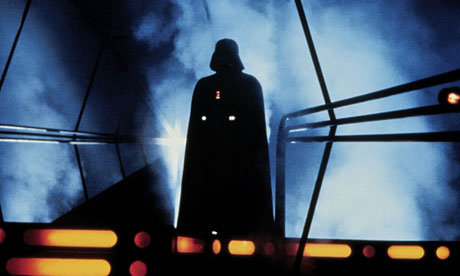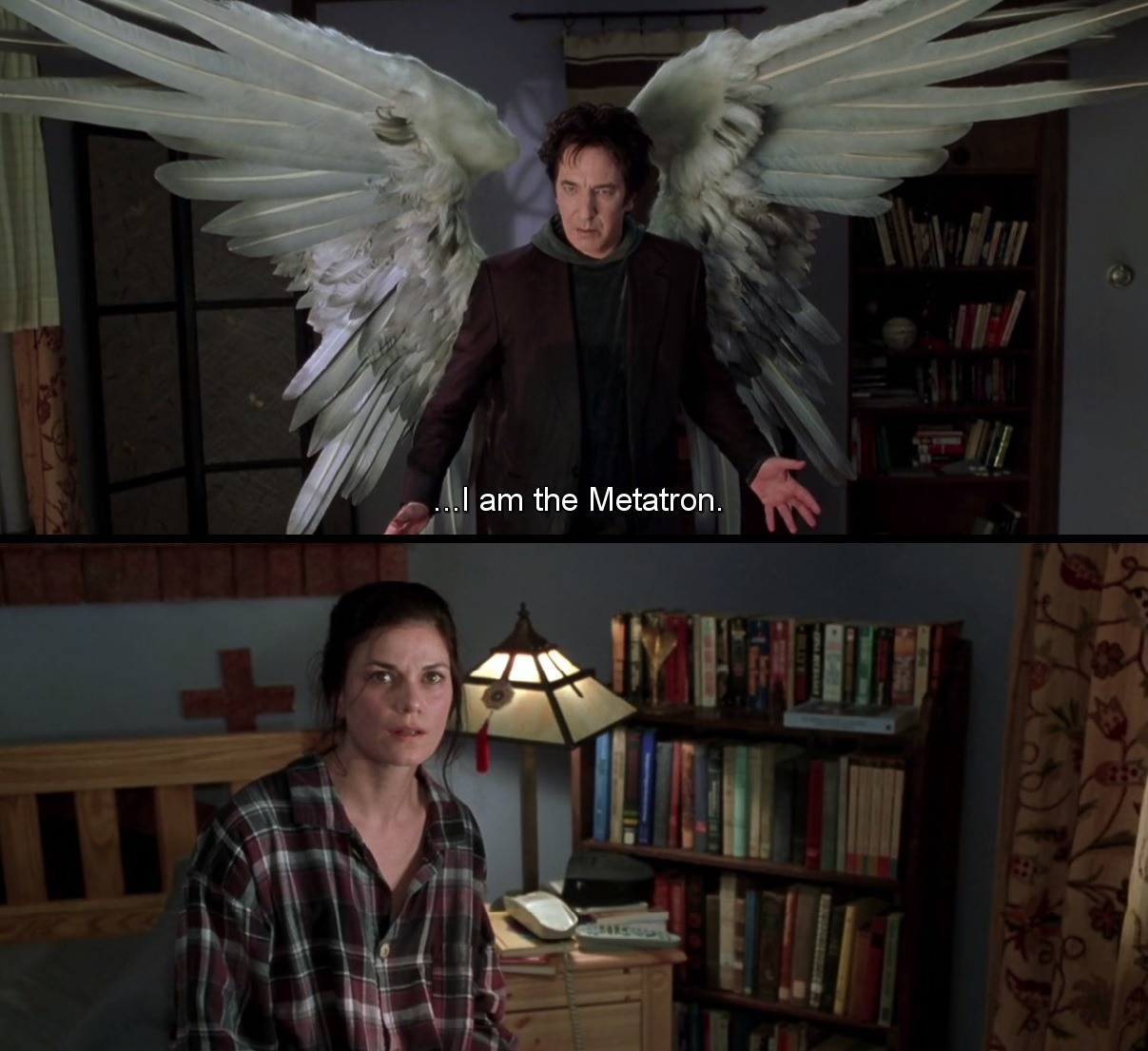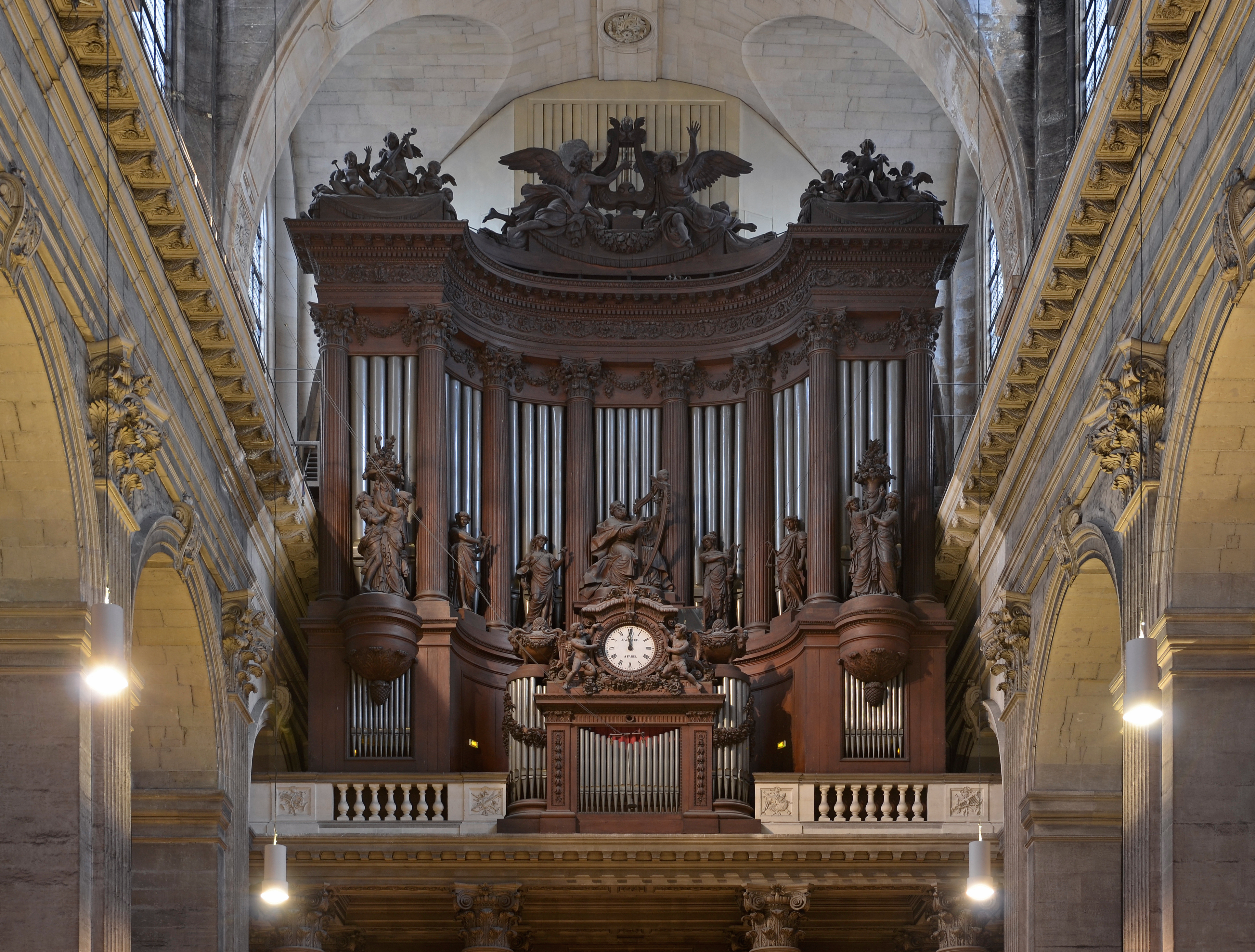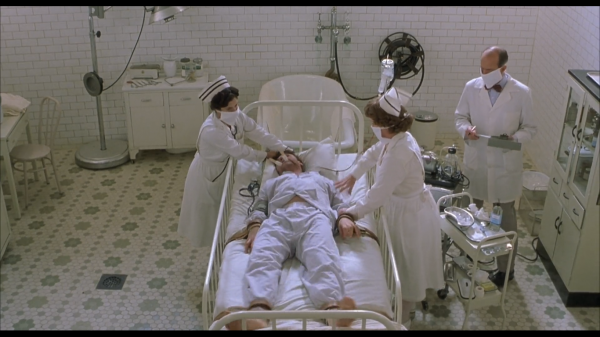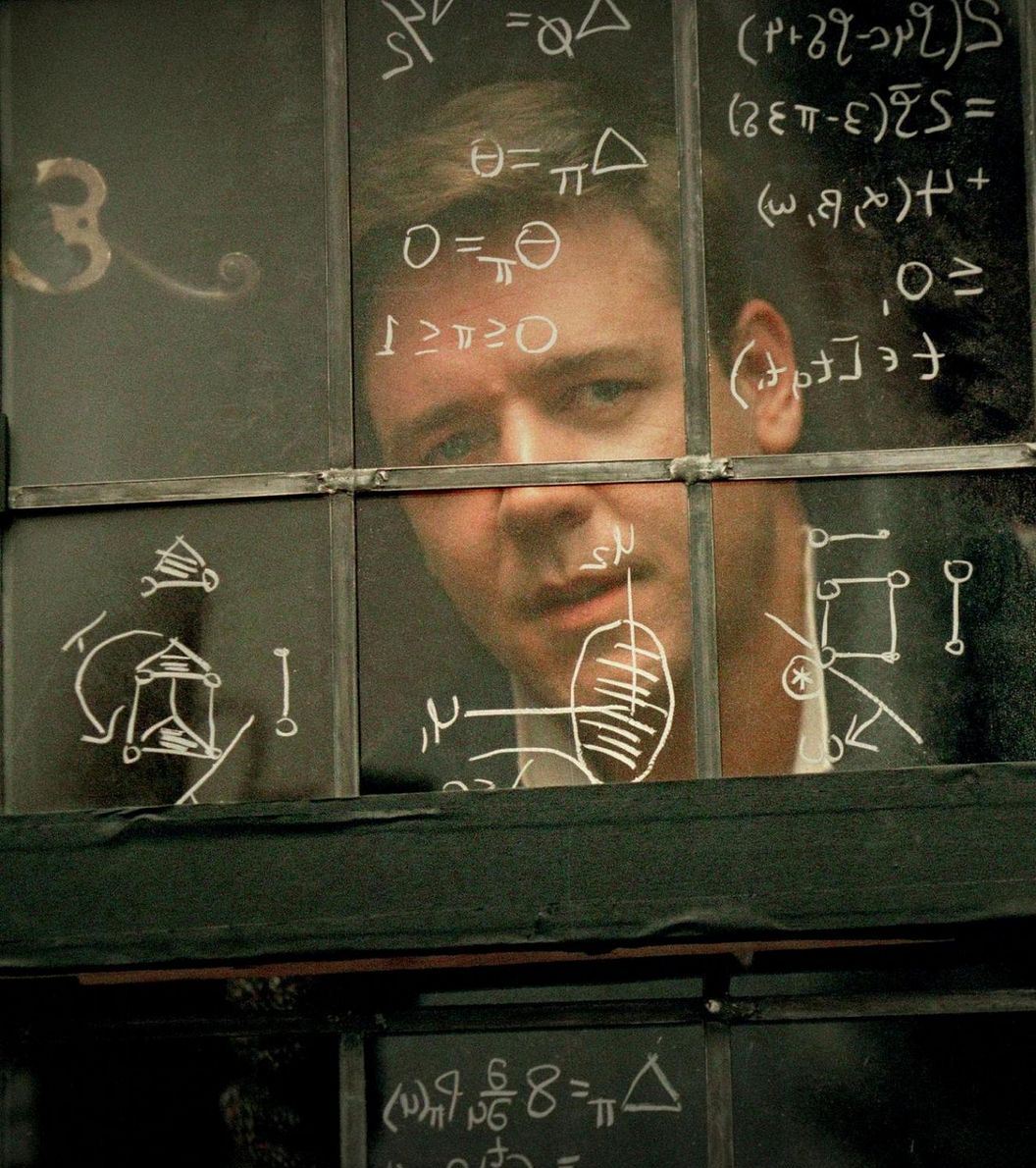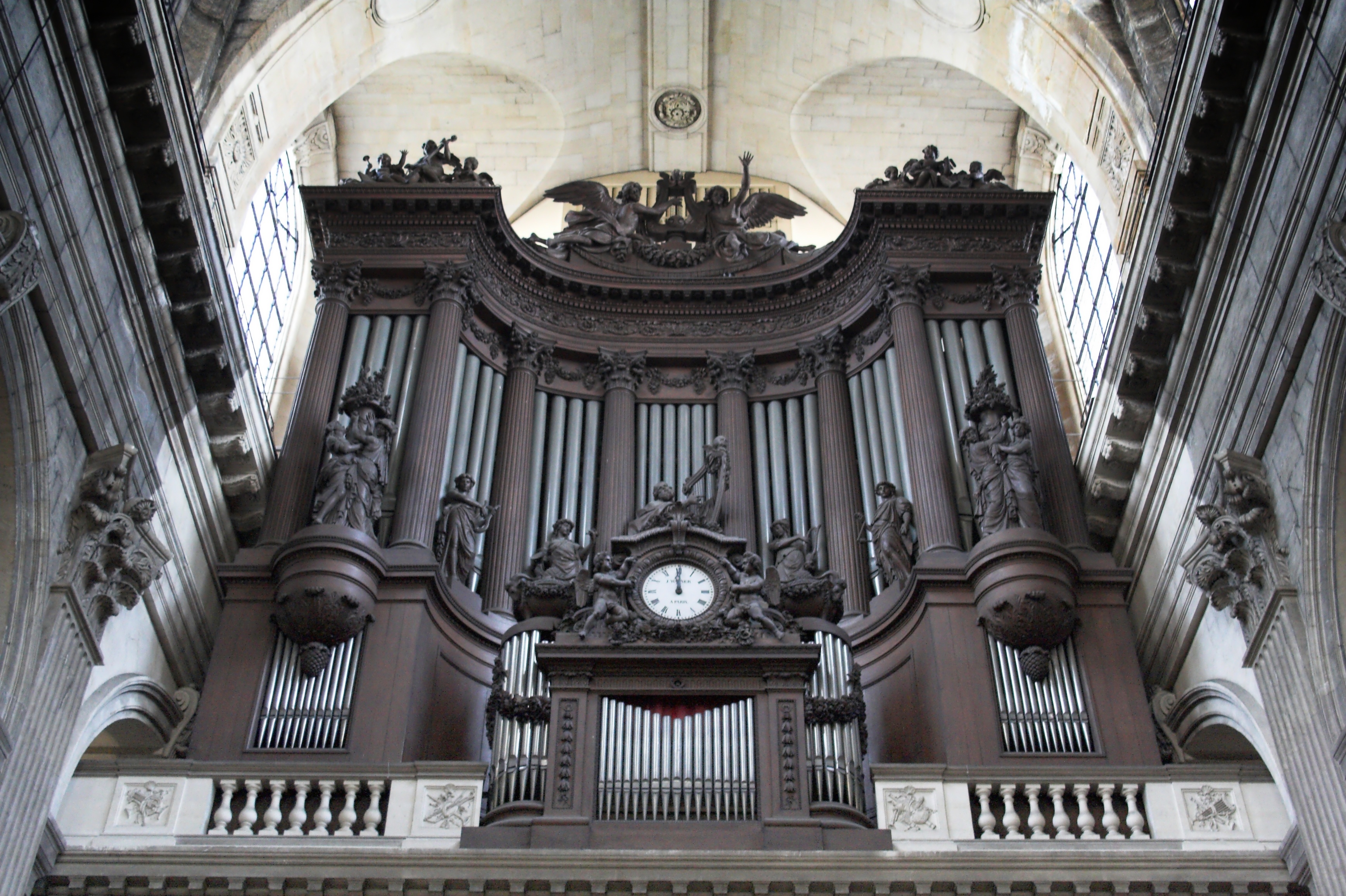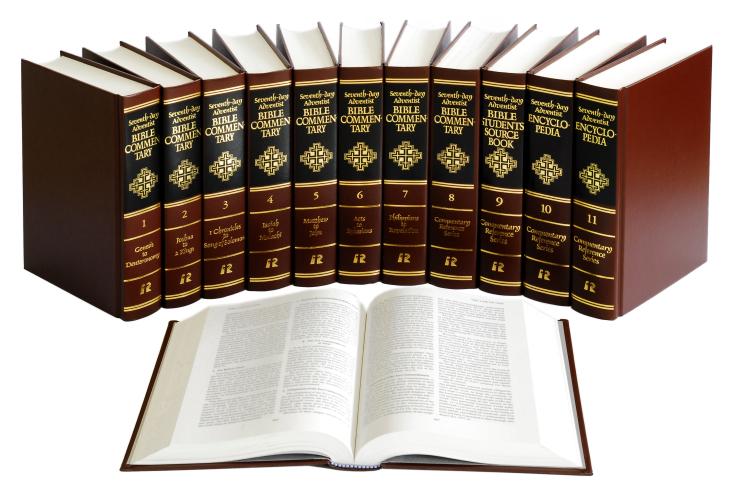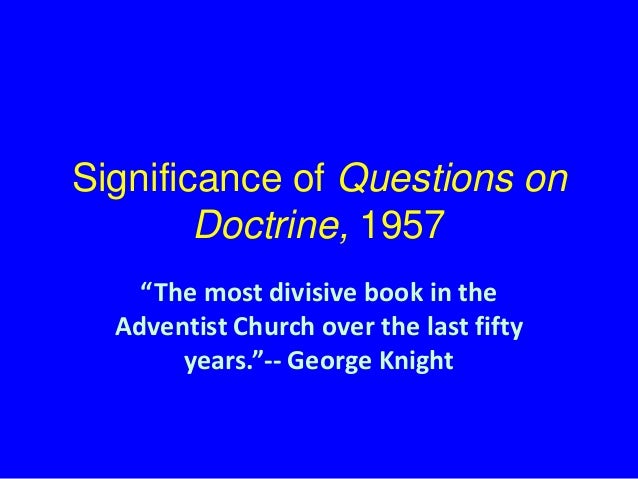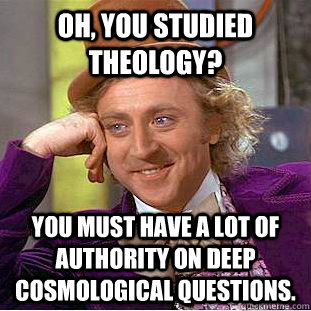




Chapter 64
A Doomed People
The triumphal ride of Christ into Jerusalem was the dim foreshadowing of His coming in the clouds of heaven with power and glory, amid the triumph of angels and the rejoicing of the saints. Then will be fulfilled the words of Christ to the priests and Pharisees: "Ye shall not see Me henceforth, till ye shall say, Blessed is He that cometh in the name of the Lord." Matt. 23:39. In prophetic vision Zechariah was shown that day of final triumph; and he beheld also the doom of those who at the first advent had rejected Christ: "They shall look upon Me whom they have pierced, and they shall mourn for Him, as one mourneth for his only son, and shall be in bitterness for Him, as one that is in bitterness for his first-born." Zech. 12:10. This scene Christ foresaw when He beheld the city and wept over it. In the temporal ruin of Jerusalem He saw the final destruction of that people who were guilty of the blood of the Son of God.
The disciples saw the hatred of the Jews to Christ, but they did not yet see to what it would lead. They did not yet understand the true condition of Israel, nor comprehend the retribution that was to fall upon Jerusalem. This Christ opened to them by a significant object lesson. The last appeal to Jerusalem had been in vain. The priests and rulers had heard the prophetic voice of the past echoed by the multitude, in answer to the question, "Who is this?" but they did not accept it as the voice of Inspiration. In anger and amazement they tried to silence the people. There were Roman officers in the throng, and to them His enemies denounced Jesus as the leader of a rebellion. They represented that He was about to take possession of the temple, and reign as king in Jerusalem.
But the calm voice of Jesus hushed for a moment the clamorous throng as He again declared that He had not come to establish a temporal rule; He should soon ascend to His Father, and His accusers would see Him no more until He should come again in glory. Then, too late for their salvation, they would acknowledge Him. These words Jesus spoke with sadness and with singular power. The Roman officers were silenced and subdued. Their hearts, though strangers to divine influence, were moved as they had never been moved before. In the calm, solemn face of Jesus they read love, benevolence, and quiet dignity. They were stirred by a sympathy they could not understand. Instead of arresting Jesus, they were more inclined to pay Him homage. Turning upon the priests and rulers, they charged them with creating the disturbance. These leaders, chagrined and defeated, turned to the people with their complaints, and disputed angrily among themselves.
Meanwhile Jesus passed unnoticed to the temple. All was quiet there, for the scene upon Olivet had called away the people. For a short time Jesus remained at the temple, looking upon it with sorrowful eyes. Then He withdrew with His disciples, and returned to Bethany. When the people sought for Him to place Him on the throne, He was not to be found. The entire night Jesus spent in prayer, and in the morning He came again to the temple. On the way He passed a fig orchard. He was hungry, "and seeing a fig tree afar off having leaves, He came, if haply He might find anything thereon: and when He came to it, He found nothing but leaves; for the time of figs was not yet."
It was not the season for ripe figs, except in certain localities; and on the highlands about Jerusalem it might truly be said, "The time of figs was not yet." But in the orchard to which Jesus came, one tree appeared to be in advance of all the others. It was already covered with leaves. It is the nature of the fig tree that before the leaves open, the growing fruit appears. Therefore this tree in full leaf gave promise of well-developed fruit. But its appearance was deceptive. Upon searching its branches, from the lowest bough to the topmost twig, Jesus found "nothing but leaves." It was a mass of pretentious foliage, nothing more. Christ uttered against it a withering curse. "No man eat fruit of thee hereafter forever," He said. The next morning, as the Saviour and His disciples were again on their way to the city, the blasted branches and drooping leaves attracted their attention. "Master," said Peter, "behold, the fig tree which Thou cursedst is withered away."
Christ's act in cursing the fig tree had astonished the disciples. It seemed to them unlike His ways and works. Often they had heard Him declare that He came not to condemn the world, but that the world through Him might be saved. They remembered His words, "The Son of man is not come to destroy men's lives, but to save them." Luke 9:56. His wonderful works had been done to restore, never to destroy. The disciples had known Him only as the Restorer, the Healer. This act stood alone. What was its purpose? they questioned.
God "delighteth in mercy." "As I live, saith the Lord God, I have no pleasure in the death of the wicked." Micah 7:18; Ezek. 33:11. To Him the work of destruction and the denunciation of judgment is a "strange work." Isa. 28:21. But it is in mercy and love that He lifts the veil from the future, and reveals to men the results of a course of sin.
The cursing of the fig tree was an acted parable. That barren tree, flaunting its pretentious foliage in the very face of Christ, was a symbol of the Jewish nation. The Saviour desired to make plain to His disciples the cause and the certainty of Israel's doom. For this purpose He invested the tree with moral qualities, and made it the expositor of divine truth. The Jews stood forth distinct from all other nations, professing allegiance to God. They had been specially favored by Him, and they laid claim to righteousness above every other people. But they were corrupted by the love of the world and the greed of gain. They boasted of their knowledge, but they were ignorant of the requirements of God, and were full of hypocrisy. Like the barren tree, they spread their pretentious branches aloft, luxuriant in appearance, and beautiful to the eye, but they yielded "nothing but leaves."
The Jewish religion, with its magnificent temple, its sacred altars, its mitered priests and impressive ceremonies, was indeed fair in outward appearance, but humility, love, and benevolence were lacking. All the trees in the fig orchard were destitute of fruit; but the leafless trees raised no expectation, and caused no disappointment. By these trees the Gentiles were represented. They were as destitute as were the Jews of godliness; but they had not professed to serve God. They made no boastful pretensions to goodness. They were blind to the works and ways of God. With them the time of figs was not yet. They were still waiting for a day which would bring them light and hope. The Jews, who had received greater blessings from God, were held accountable for their abuse of these gifts. The privileges of which they boasted only increased their guilt.
Jesus had come to the fig tree hungry, to find food. So He had come to Israel, hungering to find in them the fruits of righteousness. He had lavished on them His gifts, that they might bear fruit for the blessing of the world. Every opportunity and privilege had been granted them, and in return He sought their sympathy and co-operation in His work of grace. He longed to see in them self-sacrifice and compassion, zeal for God, and a deep yearning of soul for the salvation of their fellow men. Had they kept the law of God, they would have done the same unselfish work that Christ did. But love to God and man was eclipsed by pride and self-sufficiency. They brought ruin upon themselves by refusing to minister to others. The treasures of truth which God had committed to them, they did not give to the world. In the barren tree they might read both their sin and its punishment. Withered beneath the Saviour's curse, standing forth sere and blasted, dried up by the roots, the fig tree showed what the Jewish people would be when the grace of God was removed from them. Refusing to impart blessing, they would no longer receive it. "O Israel," the Lord says, "thou hast destroyed thyself." Hosea 13:9.
The warning is for all time. Christ's act in cursing the tree which His own power had created stands as a warning to all churches and to all Christians. No one can live the law of God without ministering to others. But there are many who do not live out Christ's merciful, unselfish life. Some who think themselves excellent Christians do not understand what constitutes service for God. They plan and study to please themselves. They act only in reference to self. Time is of value to them only as they can gather for themselves. In all the affairs of life this is their object. Not for others but for themselves do they minister. God created them to live in a world where unselfish service must be performed. He designed them to help their fellow men in every possible way. But self is so large that they cannot see anything else. They are not in touch with humanity. Those who thus live for self are like the fig tree, which made every pretension but was fruitless. They observe the forms of worship, but without repentance or faith. In profession they honor the law of God, but obedience is lacking. They say, but do not. In the sentence pronounced on the fig tree Christ demonstrates how hateful in His eyes is this vain pretense. He declares that the open sinner is less guilty than is he who professes to serve God, but who bears no fruit to His glory.
The parable of the fig tree, spoken before Christ's visit to Jerusalem, had a direct connection with the lesson He taught in cursing the fruitless tree. For the barren tree of the parable the gardener pleaded, Let it alone this year, until I shall dig about it and dress it; and if it bear fruit, well; but if not, then after that thou shalt cut it down. Increased care was to be given the unfruitful tree. It was to have every advantage. But if it remained fruitless, nothing could save it from destruction. In the parable the result of the gardener's work was not foretold. It depended upon that people to whom Christ's words were spoken. They were represented by the fruitless tree, and it rested with them to decide their own destiny. Every advantage that Heaven could bestow was given them, but they did not profit by their increased blessings. By Christ's act in cursing the barren fig tree, the result was shown. They had determined their own destruction.
For more than a thousand years the Jewish nation had abused God's mercy and invited His judgments. They had rejected His warnings and slain His prophets. For these sins the people of Christ's day made themselves responsible by following the same course. In the rejection of their present mercies and warnings lay the guilt of that generation. The fetters which the nation had for centuries been forging, the people of Christ's day were fastening upon themselves. In every age there is given to men their day of light and privilege, a probationary time in which they may become reconciled to God. But there is a limit to this grace. Mercy may plead for years and be slighted and rejected; but there comes a time when mercy makes her last plea. The heart becomes so hardened that it ceases to respond to the Spirit of God. Then the sweet, winning voice entreats the sinner no longer, and reproofs and warnings cease.
That day had come to Jerusalem. Jesus wept in anguish over the doomed city, but He could not deliver her. He had exhausted every resource. In rejecting the warnings of God's Spirit, Israel had rejected the only means of help. There was no other power by which they could be delivered. The Jewish nation was a symbol of the people of all ages who scorn the pleadings of Infinite Love. The tears of Christ when He wept over Jerusalem were for the sins of all time. In the judgments pronounced upon Israel, those who reject the reproofs and warnings of God's Holy Spirit, may read their own condemnation. In this generation there are many who are treading on the same ground as were the unbelieving Jews. They have witnessed the manifestation of the power of God; the Holy Spirit has spoken to their hearts; but they cling to their unbelief and resistance. God sends them warnings and reproof, but they are not willing to confess their errors, and they reject His message and His messenger. The very means He uses for their recovery becomes to them a stone of stumbling.
The prophets of God were hated by apostate Israel because through them their hidden sins were brought to light. Ahab regarded Elijah as his enemy because the prophet was faithful to rebuke the king's secret iniquities. So today the servant of Christ,the reprover of sin, meets with scorn and rebuffs. Bible truth, the religion of Christ, struggles against a strong current of moral impurity. Prejudice is even stronger in the hearts of men now than in Christ's day. Christ did not fulfill men's expectations; His life was a rebuke to their sins, and they rejected Him. So now the truth of God's word does not harmonize with men's practices and their natural inclination, and thousands reject its light. Men prompted by Satan cast doubt upon God's word, and choose to exercise their independent judgment. They choose darkness rather than light, but they do it at the peril of their souls. Those who caviled at the words of Christ, found ever-increased cause for cavil, until they turned from the Truth and the Life.
So it is now. God does not propose to remove every objection which the carnal heart may bring against His truth. To those who refuse the precious rays of light which would illuminate the darkness, the mysteries of God's word remain such forever. From them the truth is hidden. They walk blindly, and know not the ruin before them. Christ overlooked the world and all ages from the height of Olivet; and His words are applicable to every soul who slights the pleadings of divine mercy. Scorner of His love, He addresses you today. It is "thou, even thou," who shouldest know the things that belong to thy peace. Christ is shedding bitter tears for you, who have no tears to shed for yourself. Already that fatal hardness of heart which destroyed the Pharisees is manifest in you. And every evidence of the grace of God, every ray of divine light, is either melting and subduing the soul, or confirming it in hopeless impenitence.
Christ foresaw that Jerusalem would remain obdurate and impenitent; yet all the guilt, all the consequences of rejected mercy, lay at her own door. Thus it will be with every soul who is following the same course. The Lord declares, "O Israel, thou hast destroyed thyself." "Hear, O earth: behold, I will bring evil upon this people, even the fruit of their thoughts, because they have not hearkened unto My words, nor to My law, but rejected it." Hosea 13:9; Jer. 6:19.
Chapter 65
At the beginning of His ministry, Christ had driven from the temple those who defiled it by their unholy traffic; and His stern and godlike demeanor had struck terror to the hearts of the scheming traders. At the close of His mission He came again to the temple, and found it still desecrated as before. The condition of things was even worse than before. The outer court of the temple was like a vast cattle yard. With the cries of the animals and the sharp chinking of coin was mingled the sound of angry altercation between traffickers, and among them were heard the voices of men in sacred office. The dignitaries of the temple were themselves engaged in buying and selling and the exchange of money. So completely were they controlled by their greed of gain that in the sight of God they were no better than thieves.
Little did the priests and rulers realize the solemnity of the work which it was theirs to perform. At every Passover and Feast of Tabernacles, thousands of animals were slain, and their blood was caught by the priests and poured upon the altar. The Jews had become familiar with the offering of blood, and had almost lost sight of the fact that it was sin which made necessary all this shedding of the blood of beasts. They did not discern that it prefigured the blood of God's dear Son, which was to be shed for the life of the world, and that by the offering of sacrifices men were to be directed to a crucified Redeemer. Jesus looked upon the innocent victims of sacrifice, and saw how the Jews had made these great convocations scenes of bloodshed and cruelty. In place of humble repentance of sin, they had multiplied the sacrifice of beasts, as if God could be honored by a heartless service. The priests and rulers had hardened their hearts through selfishness and avarice. The very symbols pointing to the Lamb of God they had made a means of getting gain. Thus in the eyes of the people the sacredness of the sacrificial service had been in a great measure destroyed. The indignation of Jesus was stirred; He knew that His blood, so soon to be shed for the sins of the world, would be as little appreciated by the priests and elders as was the blood of beasts which they kept incessantly flowing.
Against these practices Christ had spoken through the prophets. Samuel had said, "Hath the Lord as great delight in burnt offerings and sacrifices, as in obeying the voice of the Lord? Behold, to obey is better than sacrifice, and to hearken than the fat of rams." And Isaiah, seeing in prophetic vision the apostasy of the Jews, addressed them as rulers of Sodom and Gomorrah: "Hear the word of the Lord, ye rulers of Sodom; give ear unto the law of our God, ye people of Gomorrah. To what purpose is the multitude of your sacrifices unto Me? saith the Lord: I am full of the burnt offerings of rams, and the fat of fed beasts; and I delight not in the blood of bullocks, or of lambs, or of he-goats. When ye come to appear before Me, who hath required this at your hand, to tread My courts?" "Wash you, make you clean; put away the evil of your doings from before Mine eyes; cease to do evil; learn to do well; seek judgment, relieve the oppressed, judge the fatherless, plead for the widow." 1 Sam. 15:22; Isa. 1:10-12, 16,17.
He who had Himself given these prophecies now for the last time repeated the warning. In fulfillment of prophecy the people had proclaimed Jesus king of Israel. He had received their homage, and accepted the office of king. In this character He must act. He knew that His efforts to reform a corrupt priesthood would be in vain; nevertheless His work must be done; to an unbelieving people the evidence of His divine mission must be given.
Again the piercing look of Jesus swept over the desecrated court of the temple. All eyes were turned toward Him. Priest and ruler, Pharisee and Gentile, looked with astonishment and awe upon Him who stood before them with the majesty of heaven's King. Divinity flashed through humanity, investing Christ with a dignity and glory He had never manifested before. Those standing nearest Him drew as far away as the crowd would permit. Except for a few of His disciples, the Saviour stood alone. Every sound was hushed. The deep silence seemed unbearable. Christ spoke with a power that swayed the people like a mighty tempest: "It is written, My house shall be called the house of prayer; but ye have made it a den of thieves." His voice sounded like a trumpet through the temple. The displeasure of His countenance seemed like consuming fire. With authority He commanded, "Take these things hence." John 2:16.
Three years before, the rulers of the temple had been ashamed of their flight before the command of Jesus. They had since wondered at their own fears, and their unquestioning obedience to a single humble Man. They had felt that it was impossible for their undignified surrender to be repeated. Yet they were now more terrified than before, and in greater haste to obey His command. There were none who dared question His authority. Priests and traders fled from His presence, driving their cattle before them. On the way from the temple they were met by a throng who came with their sick inquiring for the Great Healer. The report given by the fleeing people caused some of these to turn back. They feared to meet One so powerful, whose very look had driven the priests and rulers from His presence. But a large number pressed through the hurrying crowd, eager to reach Him who was their only hope. When the multitude fled from the temple, many had remained behind. These were now joined by the newcomers. Again the temple court was filled by the sick and the dying, and once more Jesus ministered to them.
After a season the priests and rulers ventured back to the temple. When the panic had abated, they were seized with anxiety to know what would be the next movement of Jesus. They expected Him to take the throne of David. Quietly returning to the temple, they heard the voices of men, women, and children praising God. Upon entering, they stood transfixed before the wonderful scene. They saw the sick healed, the blind restored to sight, and deaf receive their hearing, and the crippled leap for joy. The children were foremost in the rejoicing. Jesus had healed their maladies; He had clasped them in His arms, received their kisses of grateful affection, and some of them had fallen asleep upon His breast as He was teaching the people. Now with glad voices the children sounded His praise. They repeated the hosannas of the day before, and waved palm branches triumphantly before the Saviour. The temple echoed and re-echoed with their acclamations, "Blessed be He that cometh in the name of the Lord!" "Behold, thy King cometh unto thee; He is just, and having salvation!" Ps. 118:26; Zech. 9:9. "Hosanna to the Son of David!"
The sound of these happy, unrestrained voices was an offense to the rulers of the temple. They set about putting a stop to such demonstrations. They represented to the people that the house of God was desecrated by the feet of the children and the shouts of rejoicing. Finding that their words made no impression on the people, the rulers appealed to Christ: "Hearest Thou what these say? And Jesus saith unto them, Yea; have ye never read, Out of the mouth of babes and sucklings Thou hast perfected praise?" Prophecy had foretold that Christ should be proclaimed as king, and that word must be fulfilled. The priests and rulers of Israel refused to herald His glory, and God moved upon the children to be His witnesses. Had the voices of the children been silent, the very pillars of the temple would have sounded the Saviour's praise. The Pharisees were utterly perplexed and disconcerted. One whom they could not intimidate was in command. Jesus had taken His position as guardian of the temple. Never before had He assumed such kingly authority. Never before had His words and works possessed so great power. He had done marvelous works throughout Jerusalem, but never before in a manner so solemn and impressive. In presence of the people who had witnessed His wonderful works, the priests and rulers dared not show Him open hostility. Though enraged and confounded by His answer, they were unable to accomplish anything further that day.
The next morning the Sanhedrin again considered what course to pursue toward Jesus. Three years before, they had demanded a sign of His Messiahship. Since that time He had wrought mighty works throughout the land. He had healed the sick, miraculously fed thousands of people, walked upon the waves, and spoken peace to the troubled sea. He had repeatedly read the hearts of men as an open book; He had cast out demons, and raised the dead. The rulers had before them the evidences of His Messiahship. They now decided to demand no sign of His authority, but to draw out some admission or declaration by which He might be condemned.
Repairing to the temple where He was teaching, they proceeded to question Him: "By what authority doest Thou these things? and who gave Thee this authority?" They expected Him to claim that His authority was from God. Such an assertion they intended to deny. But Jesus met them with a question apparently pertaining to another subject, and He made His reply to them conditional on their answering this question. "The baptism of John," He said, "whence was it? from heaven, or of men?"
The priests saw that they were in a dilemma from which no sophistry could extricate them. If they said that John's baptism was from heaven, their inconsistency would be made apparent. Christ would say, Why have ye not then believed on him? John had testified of Christ, "Behold the Lamb of God, which taketh away the sin of the world." John 1:29. If the priests believed John's testimony, how could they deny the Messiahship of Christ? If they declared their real belief, that John's ministry was of men, they would bring upon themselves a storm of indignation; for the people believed John to be a prophet. With intense interest the multitude awaited the decision. They knew that the priests had professed to accept the ministry of John, and they expected them to acknowledge without a question that he was sent from God. But after conferring secretly together, the priests decided not to commit themselves. Hypocritically professing ignorance, they said, "We cannot tell." "Neither tell I you," said Christ, "by what authority I do these things."
Scribes, priests, and rulers were all silenced. Baffled and disappointed, they stood with lowering brows, not daring to press further questions upon Christ. By their cowardice and indecision they had in a great measure forfeited the respect of the people, who now stood by, amused to see these proud, self-righteous men defeated.
All these sayings and doings of Christ were important, and their influence was to be felt in an ever-increasing degree after His crucifixion and ascension. Many of those who had anxiously awaited the result of the questioning of Jesus were finally to become His disciples, first drawn toward Him by His words on that eventful day. The scene in the temple court was never to fade from their minds. The contrast between Jesus and the high priest as they talked together was marked. The proud dignitary of the temple was clothed in rich and costly garments. Upon his head was a glittering tiara. His bearing was majestic, his hair and his long flowing beard were silvered by age. His appearance awed the beholders. Before this august personage stood the Majesty of heaven, without adornment or display. His garments were travel stained; His face was pale, and expressed a patient sadness; yet written there were dignity and benevolence that contrasted strangely with the proud, self-confident, and angry air of the high priest. Many of those who witnessed the words and deeds of Jesus in the temple from that time enshrined Him in their hearts as a prophet of God. But as the popular feeling turned in His favor, the hatred of the priests toward Jesus increased. The wisdom by which He escaped the snares set for His feet, being a new evidence of His divinity, added fuel to their wrath.
In His contest with the rabbis, it was not Christ's purpose to humiliate His opponents. He was not glad to see them in a hard place. He had an important lesson to teach. He had mortified His enemies by allowing them to be entangled in the net they had spread for Him. Their acknowledged ignorance in regard to the character of John's baptism gave Him an opportunity to speak, and He improved the opportunity by presenting before them their real position, adding another warning to the many already given. "What think ye?" He said. "A certain man had two sons; and he came to the first, and said, Son, go work today in my vineyard. He answered and said, I will not: but afterward he repented, and went. And he came to the second, and said likewise. And he answered and said, I go, sir: and went not. Whether of them twain did the will of his father?"
This abrupt question threw His hearers off their guard. They had followed the parable closely, and now immediately answered, "The first." Fixing His steady eye upon them, Jesus responded in stern and solemn tones: "Verily I say unto you, That the publicans and the harlots go into the kingdom of God before you. For John came unto you in the way of righteousness, and ye believed him not: but the publicans and the harlots believed him: and ye, when ye had seen it, repented not afterward, that ye might believe him."
The priests and rulers could not but give a correct answer to Christ's question, and thus He obtained their opinion in favor of the first son. This son represented the publicans, those who were despised and hated by the Pharisees. The publicans had been grossly immoral. They had indeed been transgressors of the law of God, showing in their lives an absolute resistance to His requirements. They had been unthankful and unholy; when told to go and work in the Lord's vineyard, they had given a contemptuous refusal. But when John came, preaching repentance and baptism, the publicans received his message and were baptized.
The second son represented the leading men of the Jewish nation. Some of the Pharisees had repented and received the baptism of John; but the leaders would not acknowledge that he came from God. His warnings and denunciations did not lead them to reformation. They "rejected the counsel of God against themselves, being not baptized of him." Luke 7:30. They treated his message with disdain. Like the second son, who, when called, said, "I go, sir," but went not, the priests and rulers professed obedience, but acted disobedience. They made great professions of piety, they claimed to be obeying the law of God, but they rendered only a false obedience. The publicans were denounced and cursed by the Pharisees as infidels; but they showed by their faith and works that they were going into the kingdom of heaven before those self-righteous men who had been given great light, but whose works did not correspond to their profession of godliness. The priests and rulers were unwilling to bear these searching truths; they remained silent, however, hoping that Jesus would say something which they could turn against Him; but they had still more to bear.
"Hear another parable," Christ said: "There was a certain householder, which planted a vineyard, and hedged it round about, and digged a wine press in it, and built a tower, and let it out to husbandmen, and went into a far country: and when the time of the fruit drew near, he sent his servants to the husbandmen, that they might receive the fruits of it. And the husbandmen took his servants, and beat one, and killed another, and stoned another. Again, he sent other servants more than the first: and they did unto them likewise. But last of all he sent unto them his son, saying, They will reverence my son. But when the husbandmen saw the son, they said among themselves, This is the heir; come, let us kill him, and let us seize on his inheritance. And they caught him, and cast him out of the vineyard, and slew him. When the lord therefore of the vineyard cometh, what will he do unto those husbandmen?"
Jesus addressed all the people present; but the priests and rulers answered. "He will miserably destroy those wicked men," they said, "and will let out his vineyard unto other husbandmen, which shall render him the fruits in their seasons." The speakers had not at first perceived the application of the parable, but they now saw that they had pronounced their own condemnation. In the parable the householder represented God, the vineyard the Jewish nation, and the hedge the divine law which was their protection. The tower was a symbol of the temple. The lord of the vineyard had done everything needful for its prosperity. "What could have been done more to my vineyard," he says, "that I have not done in it." Isa. 5:4. Thus was represented God's unwearied care for Israel. And as the husbandmen were to return to the lord a due proportion of the fruits of the vineyard, so God's people were to honor Him by a life corresponding to their sacred privileges. But as the husbandmen had killed the servants whom the master sent to them for fruit, so the Jews had put to death the prophets whom God sent to call them to repentance. Messenger after messenger had been slain.
Thus far the application of the parable could not be questioned, and in what followed it was not less evident. In the beloved son whom the lord of the vineyard finally sent to his disobedient servants, and whom they seized and slew, the priests and rulers saw a distinct picture of Jesus and His impending fate. Already they were planning to slay Him whom the Father had sent to them as a last appeal. In the retribution inflicted upon the ungrateful husbandmen was portrayed the doom of those who should put Christ to death. Looking with pity upon them, the Saviour continued, "Did ye never read in the Scriptures, The stone which the builders rejected, the same is become the head of the corner: this is the Lord's doing, and it is marvelous in our eyes? Therefore say I unto you, The kingdom of God shall be taken from you, and given to a nation bringing forth the fruits thereof. And whosoever shall fall on this stone shall be broken: but on whomsoever it shall fall, it will grind him to powder."
This prophecy the Jews had often repeated in the synagogues, applying it to the coming Messiah. Christ was the cornerstone of the Jewish economy, and of the whole plan of salvation. This foundation stone the Jewish builders, the priests and rulers of Israel, were now rejecting. The Saviour called their attention to the prophecies that would show them their danger. By every means in His power He sought to make plain to them the nature of the deed they were about to do.
And His words had another purpose. In asking the question, "When the lord therefore of the vineyard cometh, what will he do unto those husbandmen?" Christ designed that the Pharisees should answer as they did. He designed that they should condemn themselves. His warnings, failing to arouse them to repentance, would seal their doom, and He wished them to see that they had brought ruin on themselves. He designed to show them the justice of God in the withdrawal of their national privileges, which had already begun, and which would end, not only in the destruction of their temple and their city, but in the dispersion of the nation. The hearers recognized the warning. But notwithstanding the sentence they themselves had pronounced, the priests and rulers were ready to fill out the picture by saying, "This is the heir; come, let us kill him." "But when they sought to lay hands on Him, they feared the multitude," for the public sentiment was in Christ's favor.
In quoting the prophecy of the rejected stone, Christ referred to an actual occurrence in the history of Israel. The incident was connected with the building of the first temple. While it had a special application at the time of Christ's first advent, and should have appealed with special force to the Jews, it has also a lesson for us. When the temple of Solomon was erected, the immense stones for the walls and the foundation were entirely prepared at the quarry; after they were brought to the place of building, not an instrument was to be used upon them; the workmen had only to place them in position. For use in the foundation, one stone of unusual size and peculiar shape had been brought; but the workmen could find no place for it, and would not accept it. It was an annoyance to them as it lay unused in their way. Long it remained a rejected stone. But when the builders came to the laying of the corner, they searched for a long time to find a stone of sufficient size and strength, and of the proper shape, to take that particular place, and bear the great weight which would rest upon it.
Should they make an unwise choice for this important place, the safety of the entire building would be endangered. They must find a stone capable of resisting the influence of the sun, of frost, and of tempest. Several stones had at different times been chosen, but under the pressure of immense weights they had crumbled to pieces. Others could not bear the test of the sudden atmospheric changes. But at last attention was called to the stone so long rejected. It had been exposed to the air, to sun and storm, without revealing the slightest crack. The builders examined this stone. It had borne every test but one. If it could bear the test of severe pressure, they decided to accept it for the cornerstone. The trial was made. The stone was accepted, brought to its assigned position, and found to be an exact fit. In prophetic vision, Isaiah was shown that this stone was a symbol of Christ. He says:
"Sanctify the Lord of hosts Himself; and let Him be your fear, and let Him be your dread. And He shall be for a sanctuary; but for a stone of stumbling and for a rock of offense to both the houses of Israel, for a gin and for a snare to the inhabitants of Jerusalem. And many among them shall stumble, and fall, and be broken, and be snared, and be taken." Carried down in prophetic vision to the first advent, the prophet is shown that Christ is to bear trials and tests of which the treatment of the chief cornerstone in the temple of Solomon was symbolic. "Therefore thus saith the Lord God, Behold, I lay in Zion for a foundation a stone, a tried stone, a precious cornerstone, a sure foundation: he that believeth shall not make haste." Isa. 8:13-15; 28:16.
In infinite wisdom, God chose the foundation stone, and laid it Himself. He called it "a sure foundation." The entire world may lay upon it their burdens and griefs; it can endure them all. With perfect safety they may build upon it. Christ is a "tried stone." Those who trust in Him, He never disappoints. He has borne every test. He has endured the pressure of Adam's guilt, and the guilt of his posterity, and has come off more than conqueror of the powers of evil. He has borne the burdens cast upon Him by every repenting sinner. In Christ the guilty heart has found relief. He is the sure foundation. All who make Him their dependence rest in perfect security. In Isaiah's prophecy, Christ is declared to be both a sure foundation and a stone of stumbling. The apostle Peter, writing by inspiration of the Holy Spirit, clearly shows to whom Christ is a foundation stone, and to whom a rock of offense:
"If so be ye have tasted that the Lord is gracious. To whom coming, as unto a living stone, disallowed indeed of men, but chosen of God, and precious, ye also, as lively stones, are built up a spiritual house, an holy priesthood, to offer up spiritual sacrifices, acceptable to God by Jesus Christ. Wherefore also it is contained in the Scripture, Behold, I lay in Sion a chief cornerstone, elect, precious: and he that believeth on Him shall not be confounded. Unto you therefore which believe He is precious: but unto them which be disobedient, the stone which the builders disallowed, the same is made the head of the corner, and a stone of stumbling, and a rock of offense, even to them which stumble at the word, being disobedient." 1 Peter 2:3-8.
To those who believe, Christ is the sure foundation. These are they who fall upon the Rock and are broken. Submission to Christ and faith in Him are here represented. To fall upon the Rock and be broken is to give up our self-righteousness and to go to Christ with the humility of a child, repenting of our transgressions, and believing in His forgiving love. And so also it is by faith and obedience that we build on Christ as our foundation.
Upon this living stone, Jews and Gentiles alike may build. This is the only foundation upon which we may securely build. It is broad enough for all, and strong enough to sustain the weight and burden of the whole world. And by connection with Christ, the living stone, all who build upon this foundation become living stones. Many persons are by their own endeavors hewn, polished, and beautified; but they cannot become "living stones," because they are not connected with Christ. Without this connection, no man can be saved. Without the life of Christ in us, we cannot withstand the storms of temptation. Our eternal safety depends upon our building upon the sure foundation. Multitudes are today building upon foundations that have not been tested.
When the rain falls, and the tempest rages, and the floods come, their house will fall, because it is not founded upon the eternal Rock, the chief cornerstone Christ Jesus. "To them which stumble at the word, being disobedient," Christ is a rock of offense. But "the stone which the builders disallowed, the same is made the head of the corner." Like the rejected stone, Christ in His earthly mission had borne neglect and abuse. He was "despised and rejected of men; a man of sorrows, and acquainted with grief: . . . He was despised, and we esteemed Him not." Isa. 53:3. But the time was near when He would be glorified. By the resurrection from the dead He would be declared "the Son of God with power." Rom. 1:4. At His second coming He would be revealed as Lord of heaven and earth. Those who were now about to crucify Him would recognize His greatness. Before the universe the rejected stone would become the head of the corner.
And on "whomsoever it shall fall, it will grind him to powder." The people who rejected Christ were soon to see their city and their nation destroyed. Their glory would be broken, and scattered as the dust before the wind. And what was it that destroyed the Jews? It was the rock which, had they built upon it, would have been their security. It was the goodness of God despised, the righteousness spurned, the mercy slighted. Men set themselves in opposition to God, and all that would have been their salvation was turned to their destruction. All that God ordained unto life they found to be unto death. In the Jews' crucifixion of Christ was involved the destruction of Jerusalem. The blood shed upon Calvary was the weight that sank them to ruin for this world and for the world to come. So it will be in the great final day, when judgment shall fall upon the rejecters of God's grace. Christ, their rock of offense, will then appear to them as an avenging mountain. The glory of His countenance, which to the righteous is life, will be to the wicked a consuming fire. Because of love rejected, grace despised, the sinner will be destroyed.
By many illustrations and repeated warnings, Jesus showed what would be the result to the Jews of rejecting the Son of God. In these words He was addressing all in every age who refuse to receive Him as their Redeemer. Every warning is for them. The desecrated temple, the disobedient son, the false husbandmen, the contemptuous builders, have their counterpart in the experience of every sinner. Unless he repent, the doom which they foreshadowed will be his.
Chapter 66
The priests and rulers had listened in silence to Christ's pointed rebukes. They could not refute His charges. But they were only the more determined to entrap Him, and with this object they sent to Him spies, "which should feign themselves just men, that they might take hold of His words, that so they might deliver Him unto the power and authority of the governor." They did not send the old Pharisees whom Jesus had often met, but young men, who were ardent and zealous, and whom, they thought, Christ did not know. These were accompanied by certain of the Herodians, who were to hear Christ's words, that they might testify against Him at His trial. The Pharisees and Herodians had been bitter enemies, but they were now one in enmity to Christ.
The Pharisees had ever chafed under the exaction of tribute by the Romans. The payment of tribute they held to be contrary to the law of God. Now they saw opportunity to lay a snare for Jesus. The spies came to Him, and with apparent sincerity, as though desiring to know their duty, said, "Master, we know that Thou sayest and teachest rightly, neither acceptest Thou the person of any, but teachest the way of God truly: is it lawful for us to give tribute unto Caesar, or no?"
The words, "We know that Thou sayest and teachest rightly," had they been sincere, would have been a wonderful admission. But they were spoken to deceive; nevertheless their testimony was true. The Pharisees did know that Christ said and taught rightly, and by their own testimony will they be judged.
Those who put the question to Jesus thought that they had sufficiently disguised their purpose; but Jesus read their hearts as an open book, and sounded their hypocrisy. "Why tempt ye Me?" He said; thus giving them a sign they had not asked, by showing that He read their hidden purpose. They were still more confused when He added, "Show Me a penny." They brought it, and He asked them, "Whose image and superscription hath it? They answered and said, Caesar's." Pointing to the inscription on the coin, Jesus said, "Render therefore unto Caesar the things which are Caesar's; and unto God the things that are God's."
The spies had expected Jesus to answer their question directly, in one way or the other. If He should say, It is unlawful to give tribute to Caesar, He would be reported to the Roman authorities and arrested for inciting rebellion. But in case He should pronounce it lawful to pay the tribute, they designed to accuse Him to the people as opposing the law of God. Now they felt themselves baffled and defeated. Their plans were disarranged. The summary manner in which their question had been settled left them nothing further to say.
Christ's reply was no evasion, but a candid answer to the question. Holding in His hand the Roman coin, upon which were stamped the name and image of Caesar, He declared that since they were living under the protection of the Roman power, they should render to that power the support it claimed, so long as this did not conflict with a higher duty. But while peaceably subject to the laws of the land, they should at all times give their first allegiance to God.
The Saviour's words, "Render . . . unto God the things that are God's," were a severe rebuke to the intriguing Jews. Had they faithfully fulfilled their obligations to God, they would not have become a broken nation, subject to a foreign power. No Roman ensign would have waved over Jerusalem, no Roman sentinel would have stood at her gates, no Roman governor would have ruled within her walls. The Jewish nation was then paying the penalty of its apostasy from God.
When the Pharisees heard Christ's answer, "they marveled, and left Him, and went their way." He had rebuked their hypocrisy and presumption, and in doing this He had stated a great principle, a principle that clearly defines the limits of man's duty to the civil government and his duty to God. In many minds a vexed question had been settled. Ever after they held to the right principle. And although many went away dissatisfied, they saw that the principle underlying the question had been clearly set forth, and they marveled at Christ's far-seeing discernment.
No sooner were the Pharisees silenced than the Sadducees came forward with their artful questions. The two parties stood in bitter opposition to each other. The Pharisees were rigid adherents to tradition. They were exact in outward ceremonies, diligent in washings, fastings, and long prayers, and ostentatious in almsgiving. But Christ declared that they made void the law of God by teaching for doctrines the commandments of men. As a class they were bigoted and hypocritical; yet among them were persons of genuine piety, who accepted Christ's teachings and became His disciples. The Sadducees rejected the traditions of the Pharisees. They professed to believe the greater portion of the Scriptures, and to regard them as the rule of action; but practically they were skeptics and materialists.
The Sadducees denied the existence of angels, the resurrection of the dead, and the doctrine of a future life, with its rewards and punishments. On all these points they differed with the Pharisees. Between the two parties the resurrection was especially a subject of controversy. The Pharisees had been firm believers in the resurrection, but in these discussions their views in regard to the future state became confused. Death became to them an inexplicable mystery. Their inability to meet the arguments of the Sadducees gave rise to continual irritation. The discussions between the two parties usually resulted in angry disputes, leaving them farther apart than before.
In numbers the Sadducees fell far below their opponents, and they had not so strong a hold upon the common people; but many of them were wealthy, and they had the influence which wealth imparts. In their ranks were included most of the priests, and from among them the high priest was usually chosen. This was, however, with the express stipulation that their skeptical opinions should not be made prominent. On account of the numbers and popularity of the Pharisees, it was necessary for the Sadducees to concede outwardly to their doctrines when holding any priestly office; but the very fact that they were eligible to such office gave influence to their errors.
The Sadducees rejected the teaching of Jesus; He was animated by a spirit which they would not acknowledge as manifesting itself thus; and His teaching in regard to God and the future life contradicted their theories. They believed in God as the only being superior to man; but they argued that an overruling providence and a divine foresight would deprive man of free moral agency, and degrade him to the position of a slave. It was their belief, that, having created man, God had left him to himself, independent of a higher influence. They held that man was free to control his own life and to shape the events of the world; that his destiny was in his own hands. They denied that the Spirit of God works through human efforts or natural means. Yet they still held that, through the proper employment of his natural powers, man could become elevated and enlightened; that by rigorous and austere exactions his life could be purified.
Their ideas of God molded their own character. As in their view He had no interest in man, so they had little regard for one another; there was little union among them. Refusing to acknowledge the influence of the Holy Spirit upon human action, they lacked His power in their lives. Like the rest of the Jews, they boasted much of their birthright as children of Abraham, and of their strict adherence to the requirements of the law; but of the true spirit of the law and the faith and benevolence of Abraham, they were destitute. Their natural sympathies were brought within a narrow compass. They believed it possible for all men to secure the comforts and blessings of life; and their hearts were not touched by the wants and sufferings of others. They lived for themselves.
By His words and His works, Christ testified to a divine power that produces supernatural results, to a future life beyond the present, to God as a Father of the children of men, ever watchful of their true interests. He revealed the working of divine power in benevolence and compassion that rebuked the selfish exclusiveness of the Sadducees. He taught that both for man's temporal and for his eternal good, God moves upon the heart by the Holy Spirit. He showed the error of trusting to human power for that transformation of character which can be wrought only by the Spirit of God. This teaching the Sadducees were determined to discredit. In seeking a controversy with Jesus, they felt confident of bringing Him into disrepute, even if they could not secure His condemnation. The resurrection was the subject on which they chose to question Him. Should He agree with them, He would give still further offense to the Pharisees. Should He differ with them, they designed to hold His teaching up to ridicule.
The Sadducees reasoned that if the body is to be composed of the same particles of matter in its immortal as in its mortal state, then when raised from the dead it must have flesh and blood, and must resume in the eternal world the life interrupted on earth. In that case they concluded that earthly relationships would be resumed, husband and wife would be reunited, marriages consummated, and all things go on the same as before death, the frailties and passions of this life being perpetuated in the life beyond. In answer to their questions, Jesus lifted the veil from the future life. "In the resurrection," He said, "they neither marry, nor are given in marriage, but are as the angels of God in heaven." He showed that the Sadducees were wrong in their belief. Their premises were false. "Ye do err," He added, "not knowing the Scriptures, nor the power of God." He did not charge them, as He had charged the Pharisees, with hypocrisy, but with error of belief.
The Sadducees had flattered themselves that they of all men adhered most strictly to the Scriptures. But Jesus showed that they had not known their true meaning. That knowledge must be brought home to the heart by the enlightenment of the Holy Spirit. Their ignorance of the Scriptures and the power of God He declared to be the cause of their confusion of faith and darkness of mind. They were seeking to bring the mysteries of God within the compass of their finite reasoning. Christ called upon them to open their minds to those sacred truths that would broaden and strengthen the understanding. Thousands become infidels because their finite minds cannot comprehend the mysteries of God. They cannot explain the wonderful exhibition of divine power in His providences, therefore they reject the evidences of such power, attributing them to natural agencies which they can comprehend still less. The only key to the mysteries that surround us is to acknowledge in them all the presence and power of God.
Men need to recognize God as the Creator of the universe, One who commands and executes all things. They need a broader view of His character, and of the mystery of His agencies. Christ declared to His hearers that if there were no resurrection of the dead, the Scriptures which they professed to believe would be of no avail. He said, "But as touching the resurrection of the dead, have ye not read that which was spoken unto you by God, saying, I am the God of Abraham, and the God of Isaac, and the God of Jacob? God is not the God of the dead, but of the living." God counts the things that are not as though they were. He sees the end from the beginning, and beholds the result of His work as though it were now accomplished. The precious dead, from Adam down to the last saint who dies, will hear the voice of the Son of God, and will come forth from the grave to immortal life. God will be their God, and they shall be His people. There will be a close and tender relationship between God and the risen saints. This condition, which is anticipated in His purpose, He beholds as if it were already existing. The dead live unto Him.
By the words of Christ the Sadducees were put to silence. They could not answer Him. Not a word had been spoken of which the least advantage could be taken for His condemnation. His adversaries had gained nothing but the contempt of the people. The Pharisees, however, did not yet despair of driving Him to speak that which they could use against Him. They prevailed upon a certain learned scribe to question Jesus as to which of the ten precepts of the law was of the greatest importance.
The Pharisees had exalted the first four commandments, which point out the duty of man to his Maker, as of far greater consequence than the other six, which define man's duty to his fellow man. As the result, they greatly failed of practical godliness. Jesus had shown the people their great deficiency, and had taught the necessity of good works, declaring that the tree is known by its fruits. For this reason He had been charged with exalting the last six commandments above the first four. The lawyer approached Jesus with a direct question, "Which is the first commandment of all?" The answer of Christ is direct and forcible: "The first of all the commandments is, Hear, O Israel; The Lord our God is one Lord: and thou shalt love the Lord thy God with all thy heart, and with all thy soul, and with all thy mind, and with all thy strength: this is the first commandment." The second is like the first, said Christ; for it flows out of it, "Thou shalt love thy neighbor as thyself. There is none other commandment greater than these." "On these two commandments hang all the law and the prophets."
The first four of the Ten Commandments are summed up in the one great precept, "Thou shalt love the Lord thy God with all thy heart." The last six are included in the other, "Thou shalt love thy neighbor as thyself." Both these commandments are an expression of the principle of love. The first cannot be kept and the second broken, nor can the second be kept while the first is broken. When God has His rightful place on the throne of the heart, the right place will be given to our neighbor. We shall love him as ourselves. And only as we love God supremely is it possible to love our neighbor impartially.
And since all the commandments are summed up in love to God and man, it follows that not one precept can be broken without violating this principle. Thus Christ taught His hearers that the law of God is not so many separate precepts, some of which are of great importance, while others are of small importance and may with impunity be ignored. Our Lord presents the first four and the last six commandments as a divine whole, and teaches that love to God will be shown by obedience to all His commandments.
The scribe who had questioned Jesus was well read in the law, and he was astonished at His words. He did not expect Him to manifest so deep and thorough a knowledge of the Scriptures. He had gained a broader view of the principles underlying the sacred precepts. Before the assembled priests and rulers he honestly acknowledged that Christ had given the right interpretation to the law, saying:
"Well, Master, Thou hast said the truth: for there is one God; and there is none other but He: and to love Him with all the heart, and with all the understanding, and with all the soul, and with all the strength, and to love his neighbor as himself, is more than all whole burnt offerings and sacrifices." The wisdom of Christ's answer had convicted the scribe. He knew that the Jewish religion consisted in outward ceremonies rather than inward piety. He had some sense of the worthlessness of mere ceremonial offerings, and the faithless shedding of blood for expiation of sin. Love and obedience to God, and unselfish regard for man, appeared to him of more value than all these rites. The readiness of this man to acknowledge the correctness of Christ's reasoning, and his decided and prompt response before the people, manifested a spirit entirely different from that of the priests and rulers. The heart of Jesus went out in pity to the honest scribe who had dared to face the frowns of the priests and the threats of the rulers to speak the convictions of his heart. "And when Jesus saw that he answered discreetly, He said unto him, Thou art not far from the kingdom of God."
The scribe was near to the kingdom of God, in that he recognized deeds of righteousness as more acceptable to God than burnt offerings and sacrifices. But he needed to recognize the divine character of Christ, and through faith in Him receive power to do the works of righteousness. The ritual service was of no value, unless connected with Christ by living faith. Even the moral law fails of its purpose, unless it is understood in its relation to the Saviour. Christ had repeatedly shown that His Father's law contained something deeper than mere authoritative commands. In the law is embodied the same principle that is revealed in the gospel. The law points out man's duty and shows him his guilt. To Christ he must look for pardon and for power to do what the law enjoins.
The Pharisees had gathered close about Jesus as He answered the question of the scribe. Now turning He put a question to them: "What think ye of Christ? whose son is He?" This question was designed to test their belief concerning the Messiah,--to show whether they regarded Him simply as a man or as the Son of God. A chorus of voices answered, "The Son of David." This was the title which prophecy had given to the Messiah. When Jesus revealed His divinity by His mighty miracles, when He healed the sick and raised the dead, the people had inquired among themselves, "Is not this the Son of David?" The Syrophoenician woman, blind Bartimaeus, and many others had cried to Him for help, "Have mercy on me, O Lord, Thou Son of David." Matt. 15:22.
While riding into Jerusalem He had been hailed with the joyful shout, "Hosanna to the Son of David: Blessed is He that cometh in the name of the Lord." Matt. 21:9. And the little children in the temple had that day echoed the glad ascription. But many who called Jesus the Son of David did not recognize His divinity. They did not understand that the Son of David was also the Son of God. In reply to the statement that Christ was the Son of David, Jesus said, "How then doth David in Spirit [the Spirit of Inspiration from God] call Him Lord, saying, The Lord said unto my Lord, Sit Thou on My right hand, till I make Thine enemies Thy footstool? If David then call Him Lord, how is He his son? And no man was able to answer Him a word, neither durst any man from that day forth ask Him any more questions."



















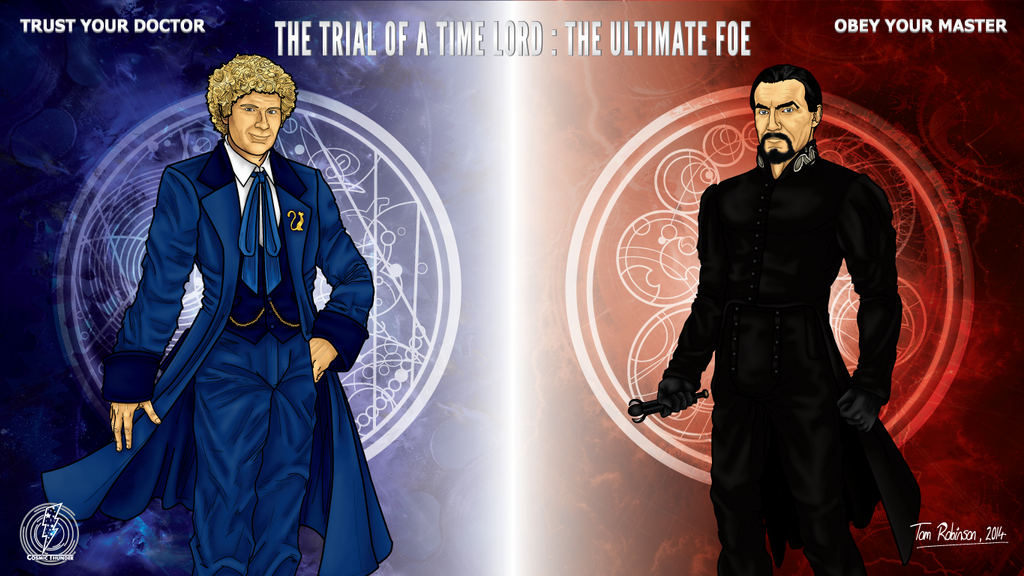







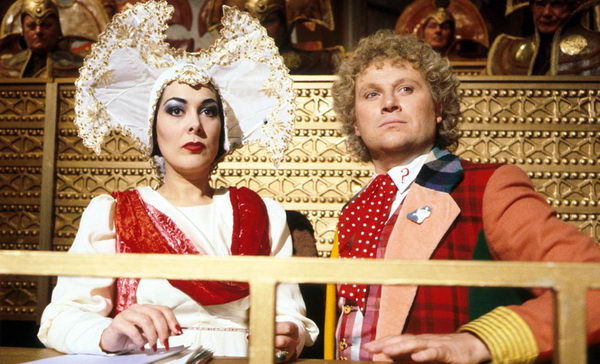




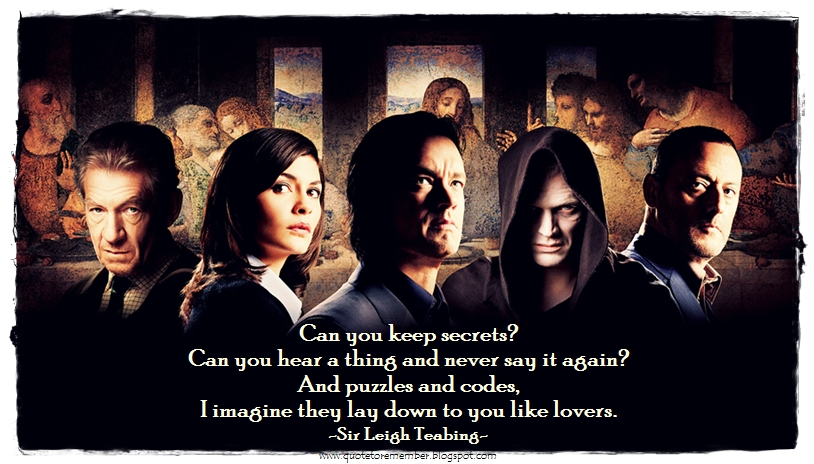











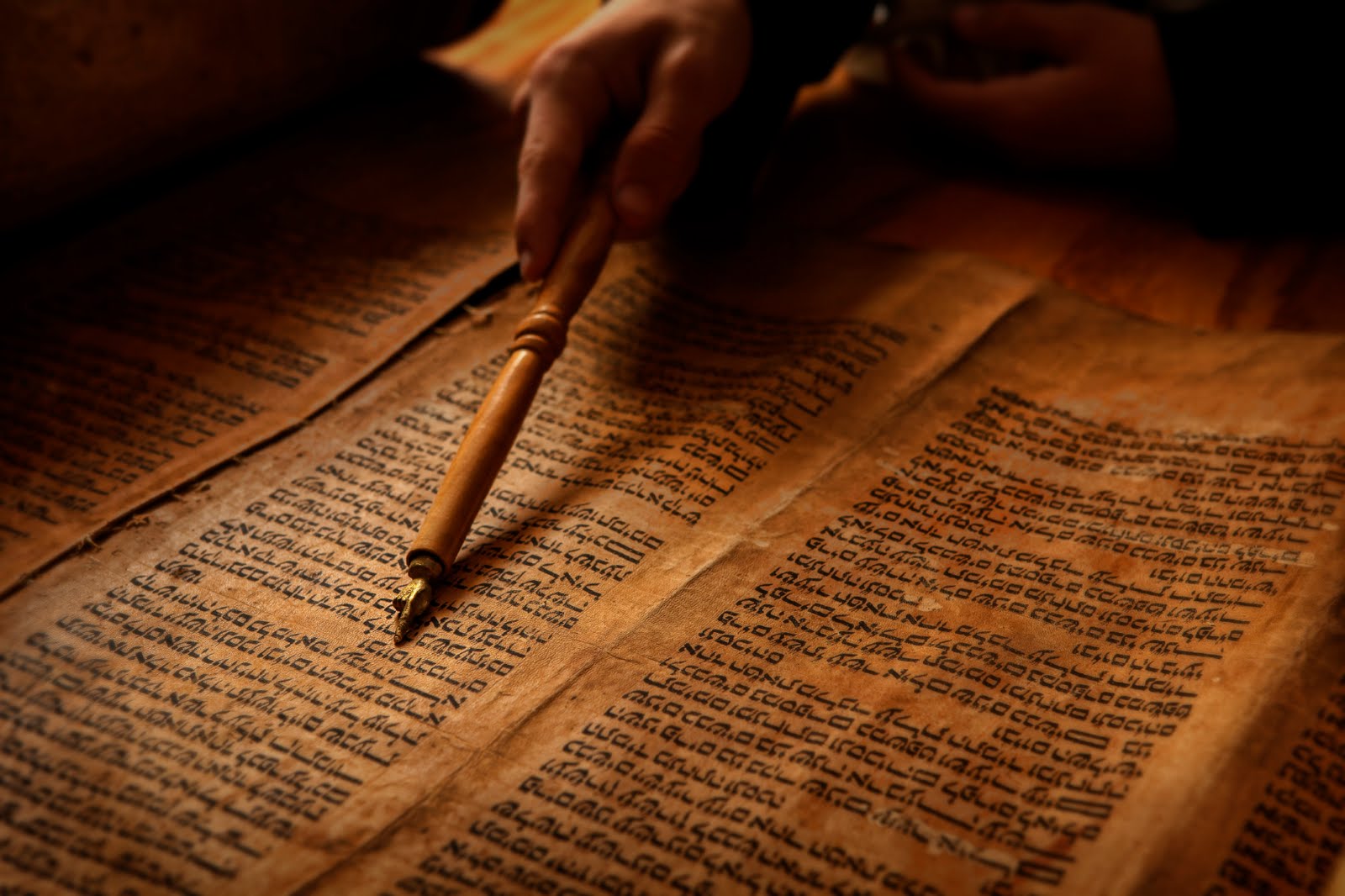
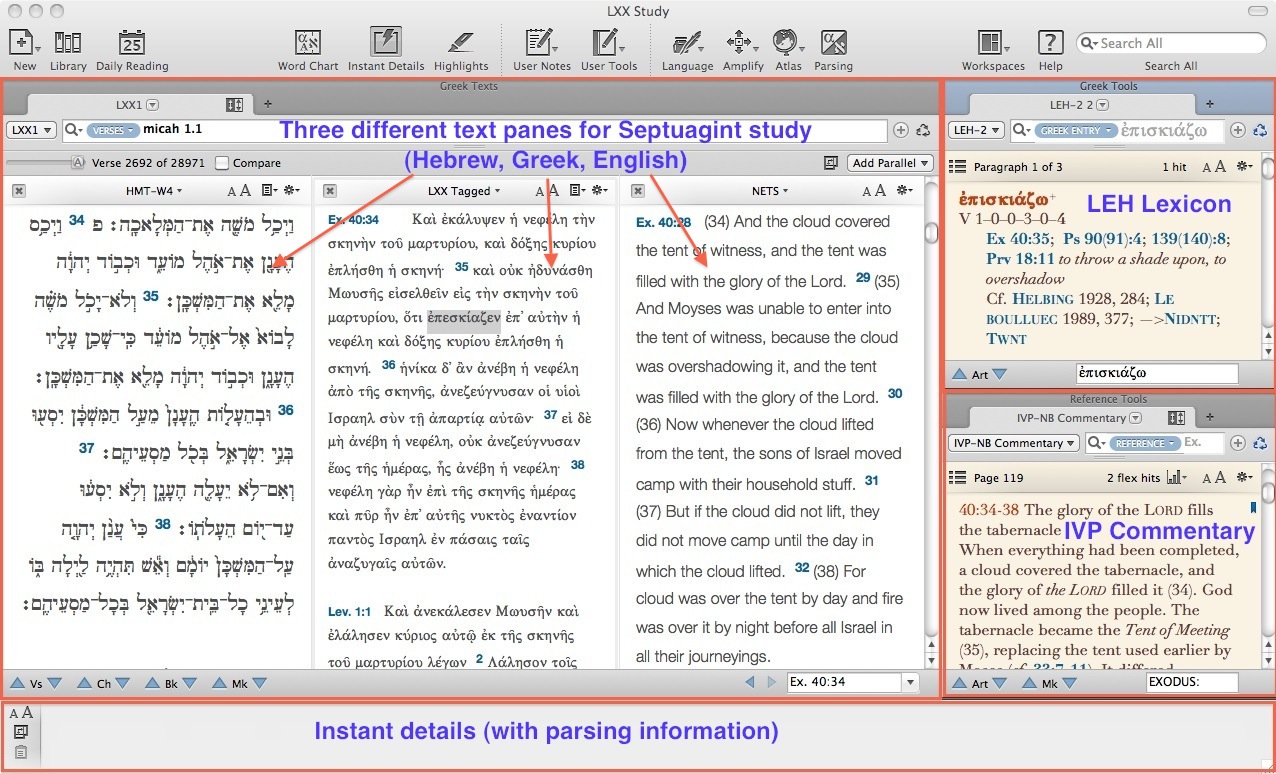























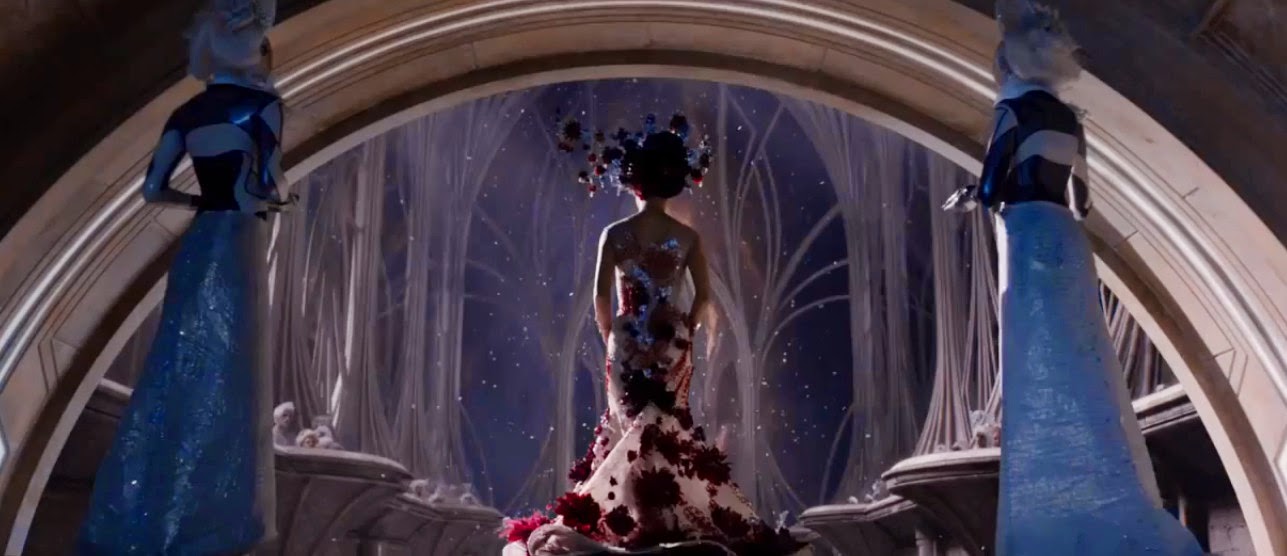

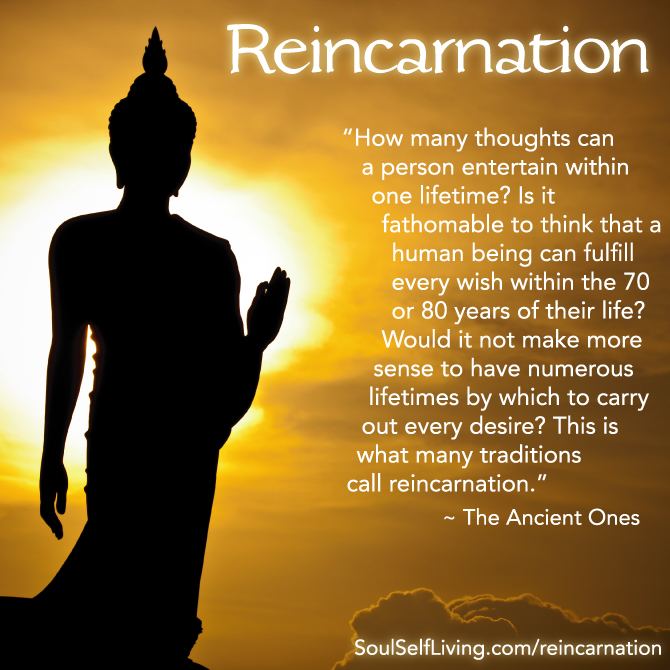














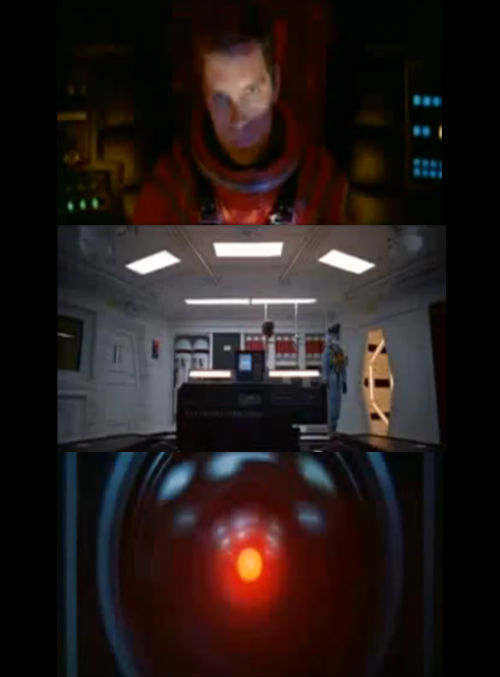
















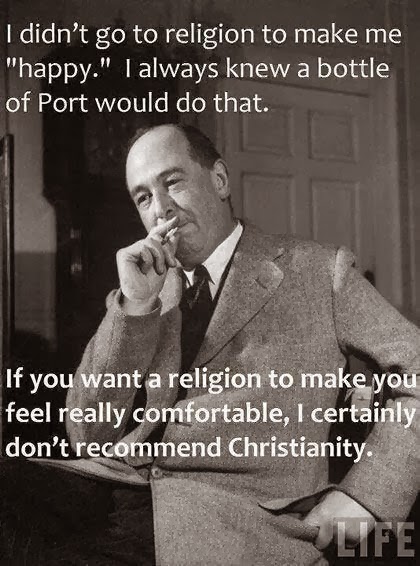





 .
. 




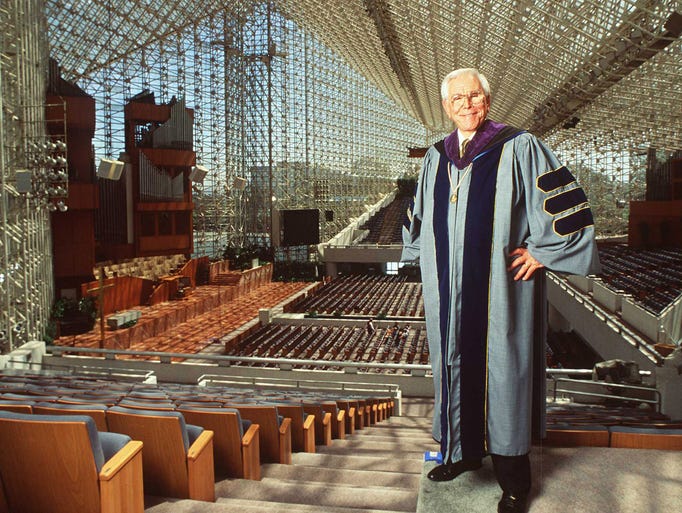

































.jpg)






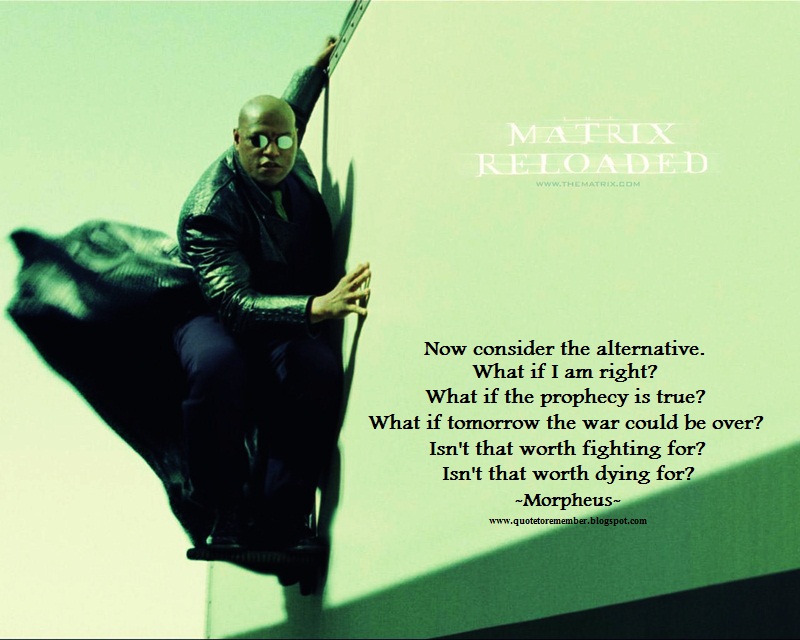


































































+Secretariat+building+stands+along+the+East+River+in+this+aerial+photograph+taken+over+New+York,+U.jpg)
















